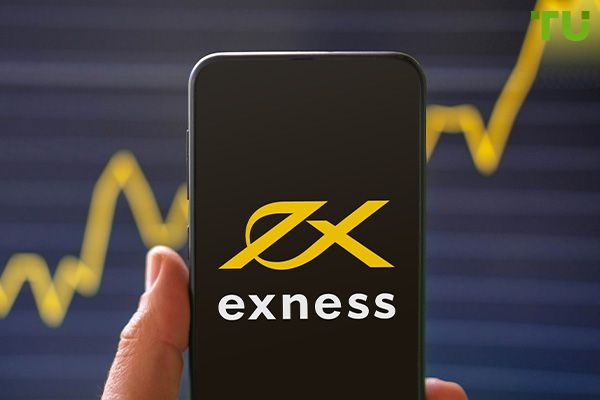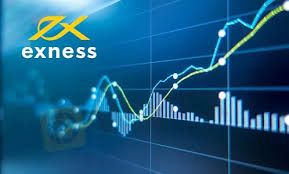
In the competitive world of online trading, having a reliable and fast trading environment is essential. One of the best solutions to achieve this is by utilizing an exness vps server Exness CFD broker VPS server. A Virtual Private Server (VPS) provides a secure and efficient platform for traders, ensuring their trading strategies can be executed without interruptions. In this article, we will delve into the significance of an Exness VPS server, its advantages, and how to optimize your trading experience.
What is an Exness VPS Server?
An Exness VPS Server is a virtual machine that runs on a physical server and is hosted remotely. It operates independently of your local hardware, providing a dedicated environment for running your trading platform and executing trades. The primary aim of using a VPS is to enhance trading performance by reducing latency and ensuring that the trading platform remains online around the clock.
Why Choose a VPS for Trading?
Using a VPS server for trading comes with several significant benefits:
- Reduced Latency: A VPS server typically operates in proximity to the broker’s servers, which means faster order execution and minimized delays during trading.
- 24/7 Availability: Unlike personal computers that can crash or go offline, a VPS is hosted in a data center with high uptime, ensuring your trading algorithms and strategies run continuously.
- Improved Security: VPS servers often come with enhanced security features, protecting your trading data and algorithms from unauthorized access.
- Scalability: As your trading needs grow, you can easily upgrade your VPS to accommodate increased demand without substantial downtime.
- Accessibility: You can access your VPS from anywhere in the world, allowing you to manage your trades on the go.
Setting Up Your Exness VPS Server
Setting up an Exness VPS server is relatively straightforward. Here is a step-by-step guide to help you get started:
- Choose a Reliable VPS Provider: Research and select a VPS provider that meets your needs and has a good reputation in the trading community.
- Sign Up and Configure: Once you’ve chosen a provider, sign up for a plan that offers the resources you need. Configure the server according to your trading requirements, which may include the installation of trading platforms such as MetaTrader 4 or MetaTrader 5.
- Connect to Your VPS: Use Remote Desktop Protocol (RDP) to connect to your new VPS server. You’ll need the server’s IP address and login credentials provided by your VPS provider.
- Install Your Trading Software: After connecting, install your preferred trading software and set up your trading strategies and expert advisors (EAs).
- Test Your Configuration: Before going live, conduct tests to ensure everything is working as expected and that trades can be executed properly.

Maximizing Your Trading Experience with an Exness VPS
Once your Exness VPS server is up and running, you’ll want to maximize its potential. Here are some tips:
- Optimize Your Trading Platform: Adjust settings within your trading platform for optimal performance. This includes setting the appropriate time frame and customizing alerts.
- Regular Backups: Ensure your trading data is backed up regularly to prevent loss of critical information.
- Monitor System Performance: Keep an eye on your VPS performance metrics to identify any bottlenecks or issues that could affect trading.
- Stay Updated: Regularly update your trading software and plugins to ensure compatibility and security.
- Utilize Security Measures: Install antivirus software and firewalls on your VPS to shield your trades from potential cyber threats.
Cost Considerations
The cost of an Exness VPS server can vary depending on the resources you choose and the provider you select. Here are key factors that influence pricing:
- Performance Specifications: The more CPU, RAM, and storage you require, the higher the cost.
- Location: The location of the server can also influence pricing. Servers closer to your broker’s data center may reduce latency and improve performance.
- Provider Reputation: Established providers may charge a premium for their services based on reliability and support.
Conclusion
For serious traders, an Exness VPS server is not just a tool; it’s a necessity. The benefits it provides in terms of speed, security, and efficiency can significantly enhance your trading experience. By selecting a reliable VPS provider, optimizing your server configuration, and maintaining good cybersecurity practices, you can take your trading to the next level. Whether you’re an experienced trader or new to the world of online trading, investing in an Exness VPS server will ultimately lead to better performance and potentially greater returns.
Frequently Asked Questions (FAQs)

1. What is the primary purpose of a VPS in trading?
A VPS allows traders to execute their trades with minimal latency and ensures that their trading software runs continually without interruptions.
2. Can I use my current trading software on a VPS?
Yes, you can install and run your existing trading software on a VPS, providing it’s compatible with the operating system used by the server.
3. Is it necessary to have technical knowledge to use a VPS?
While having some technical knowledge can be beneficial, most VPS providers offer tutorials and support to assist users in setting up and managing their servers.
4. How do I choose the right VPS plan for trading?
Consider your trading volume, the complexity of your strategies, and the resources required by your trading platform to choose the right VPS plan.
5. What should I do if I encounter issues with my VPS?
Contact your VPS provider’s customer support for assistance. Most reputable providers offer around-the-clock support to help resolve any issues.